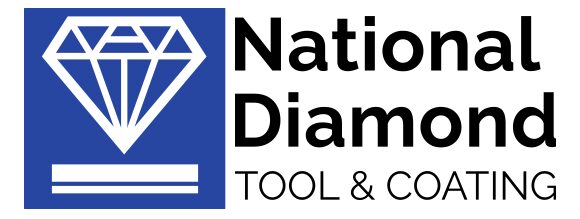Diamond-Tipped Drill Mills: Precision-Crafted Custom PCD Drills
Project Date: March 2023
This PCD-tipped drill mill was ordered by one of our long-standing customers for the manufacturing of specialty oil drilling equipment. It offers functionality similar to the full-top PCD drills we have previously produced. However, due to their complexity and low demand, we discontinued those drills. This drill mill serves as a suitable replacement for those tools. We take a PCD-tipped end mill and modify it with a drill point. The overhang of the diamond beyond the tip prevents the formation of a “nub.” We have produced these in multiple diameters ranging from 0.250″ to 0.500″, with tight tolerances of +0/-.003″.

More Information on PCD Drills
PCD drills, or Polycrystalline Diamond drills, are cutting tools used for high-precision machining of various materials, including non-ferrous metals, plastics, composites, and abrasive materials. They are particularly well-suited for applications where extended tool life, high cutting speeds, and superior surface finishes are required.
Here are some key features and benefits of PCD drills:
Diamond-Tipped: PCD drills feature cutting edges with polycrystalline diamond tips. This diamond layer provides exceptional hardness and wear resistance, allowing the drill to maintain sharpness and cutting effectiveness over extended periods.
High Heat Conductivity: Diamond is an excellent thermal conductor, which means PCD drills can efficiently dissipate heat generated during the cutting process. This characteristic helps prevent tool overheating and extends tool life.
Chemical Inertness: PCD is chemically inert, making PCD drills suitable for machining materials that may react with or wear down other tool materials. This includes abrasive materials like fiberglass, carbon fiber, and certain types of plastics.
Versatility: PCD drills can be used in a wide range of machining operations, including drilling, reaming, countersinking, and chamfering. They are effective for both roughing and finishing applications.
Increased Productivity: PCD drills can significantly increase machining productivity due to their ability to operate at higher cutting speeds and feeds compared to traditional tool materials like carbide. This results in reduced cycle times and improved throughput.
Improved Surface Finish: The sharpness and precision of PCD cutting edges produce superior surface finishes with minimal burrs or defects, reducing the need for secondary finishing operations.
Long Tool Life: PCD drills offer exceptionally long tool life compared to other cutting tools, reducing tool changeovers and downtime. This makes them particularly cost-effective for high-volume production environments.
Despite their numerous advantages, PCD drills also have some limitations. They can be more susceptible to chipping or breakage in certain applications, especially when drilling into hard or brittle materials. Additionally, PCD drills are typically more expensive upfront compared to conventional tooling options, although their long-term performance and cost-effectiveness often justify the investment, especially in demanding machining applications.
